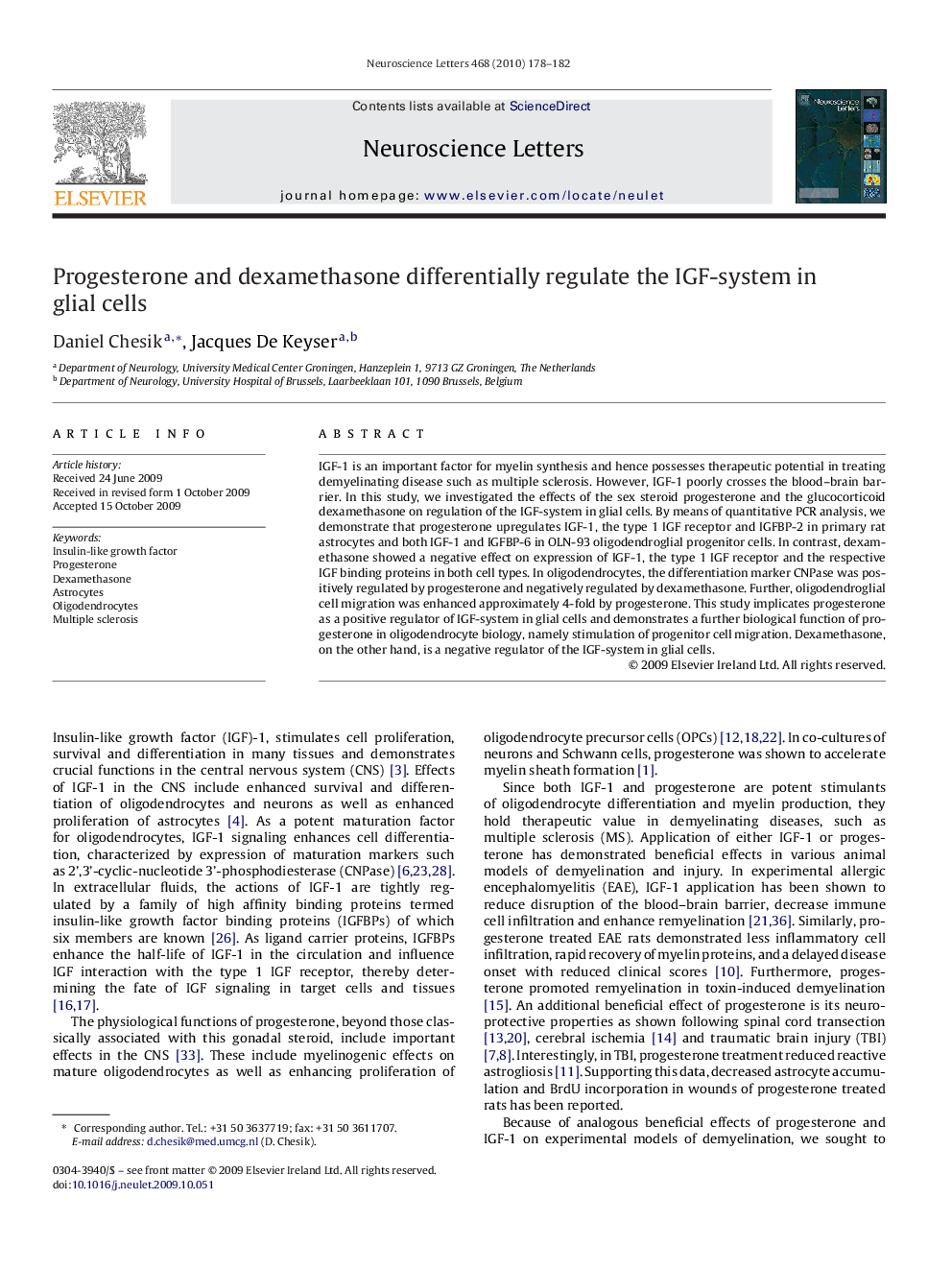| Article ID | Journal | Published Year | Pages | File Type |
|---|---|---|---|---|
| 4346706 | Neuroscience Letters | 2010 | 5 Pages |
IGF-1 is an important factor for myelin synthesis and hence possesses therapeutic potential in treating demyelinating disease such as multiple sclerosis. However, IGF-1 poorly crosses the blood–brain barrier. In this study, we investigated the effects of the sex steroid progesterone and the glucocorticoid dexamethasone on regulation of the IGF-system in glial cells. By means of quantitative PCR analysis, we demonstrate that progesterone upregulates IGF-1, the type 1 IGF receptor and IGFBP-2 in primary rat astrocytes and both IGF-1 and IGFBP-6 in OLN-93 oligodendroglial progenitor cells. In contrast, dexamethasone showed a negative effect on expression of IGF-1, the type 1 IGF receptor and the respective IGF binding proteins in both cell types. In oligodendrocytes, the differentiation marker CNPase was positively regulated by progesterone and negatively regulated by dexamethasone. Further, oligodendroglial cell migration was enhanced approximately 4-fold by progesterone. This study implicates progesterone as a positive regulator of IGF-system in glial cells and demonstrates a further biological function of progesterone in oligodendrocyte biology, namely stimulation of progenitor cell migration. Dexamethasone, on the other hand, is a negative regulator of the IGF-system in glial cells.
